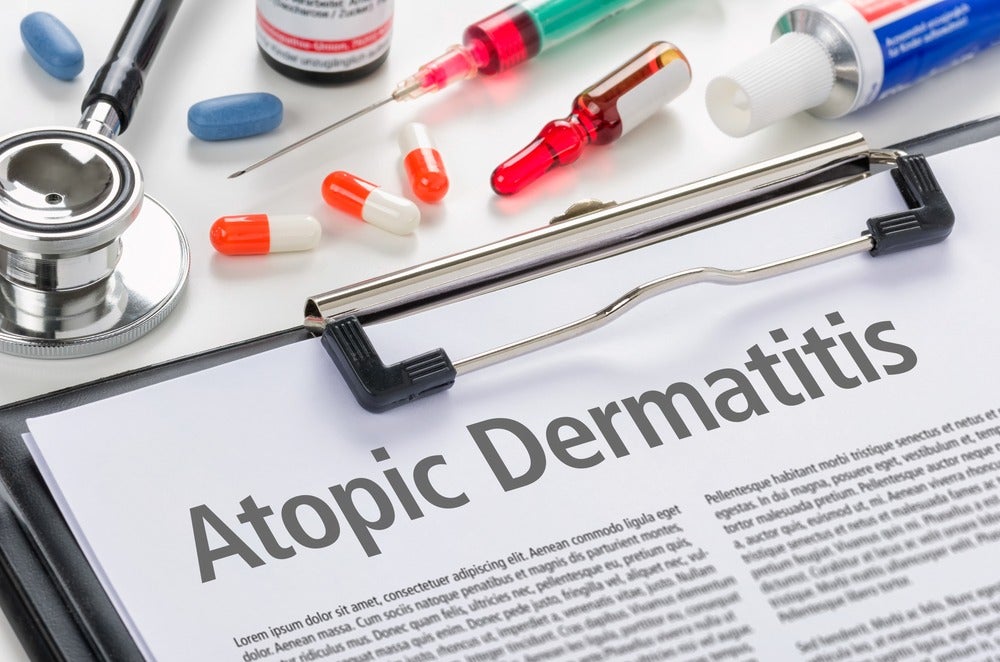On 8 November AnaptysBio announced that its interleukin (IL)-33 targeting biologic, etokimab, failed to meet its primary endpoint in a Phase IIb, randomised, double-blinded, placebo-controlled, multi-dose study.
Topline data from AnaptysBio’s ATLAS study in approximately 300 moderate-to-severe atopic dermatitis patients demonstrated that there was no statistically significant difference between any etokimab dose and placebo in providing an improvement in Eczema Area and Severity Index (EASI) score by Week 16 of the study.
This has proven to be a blow to the company, as it has decided to postpone its Phase IIb trial in eosinophilic asthma in the wake of these results until the Atlas study data has been fully analysed. It has not yet been announced how many of the trial’s secondary outcomes were met. AnaptysBio has stated that it will provide a detailed update on the status of etokimab in atopic dermatitis and eosinophilic asthma in Q1 2020. As a result, the future of IL-33 inhibition in atopic dermatitis is incredibly uncertain.
The disappointing topline Atlas results came as a surprise after the relatively successful results of the Phase IIa trial where patients were given a single dose of the IL-33 inhibitor, with 33% of participants achieving a 75% improvement in EASI score by Day 29 of the study. However, this particular proof-of-concept study was limited by its small sample size of only 12 people, and there was no separate placebo group to assess the long-term clinical efficacy data, as all patients were given an initial placebo dose before receiving the single etokimab dose after intraepidermal challenge with saline or dust mite extract.
Because the Atlas study failed to meet its primary endpoint and the future potential of IL-33 inhibition has been thrown into doubt, this could have consequences for other companies hoping to develop their own anti-IL-33 biologics. For example, Regeneron is currently testing its own IL-33 inhibitor REGN3500 in a Phase II study. The company has yet to comment on its plans for REGN3500 after etokimab’s failure.
Although other biologics targeting different interleukins are being developed for atopic dermatitis, the loss of a potential therapeutic avenue in the form of IL-33 can be seen as detrimental due to the increasing emphasis on personalized treatment in the atopic dermatitis space. As not every atopic dermatitis patient responds equally well to the same treatment, more treatment options with different mechanisms of action are vital.

US Tariffs are shifting - will you react or anticipate?
Don’t let policy changes catch you off guard. Stay proactive with real-time data and expert analysis.
By GlobalDataSo far, Regeneron and Sanofi’s Dupixent (dupilumab) is the only biologic approved for the treatment of atopic dermatitis, but other biologics in development for the disease include LEO Pharma’s IL-13 inhibitor lebrikizumab and Galderma’s IL-31 inhibitor nemolizumab. GlobalData forecasts Dupixent to earn $5.3bn in 2027 across the 7MM, indicating the high incentive for manufacturers to develop novel biologics for the atopic dermatitis market.






